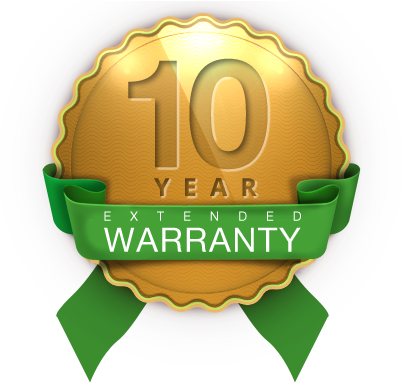How Long Do Golf Cart Batteries Last? Factors, Lifespan, and Maintenance Tips for Optimal Performance

When it comes to the performance and longevity of a golf cart, one of the most important considerations is the battery life. Whether you're using your golf cart for leisurely rounds of golf, neighborhood cruising, or utility tasks, understanding how long golf cart batteries last and how to maintain them properly can significantly impact your experience. In this article, we’ll dive into the lifespan of golf cart batteries, factors that influence battery life, and essential maintenance tips. We will also highlight how SPIDERWAY batteries can enhance the performance and longevity of your golf cart.
How Long Do Golf Cart Batteries Last?
The lifespan of a golf cart battery typically ranges from 4 to 6 years, depending on several factors, including the type of battery, how often it's used, and how well it’s maintained. However, the battery life can extend beyond 6 years if it is properly cared for.
The most common types of golf cart batteries are lead-acid and lithium-ion (Li-ion). Each type has its own characteristics that affect lifespan:
- Lead-Acid Golf Cart Batteries:
- These are the traditional battery type used in most golf carts and are generally more affordable upfront.
- A typical lead-acid battery lasts about 4 to 6 years, but its performance can degrade faster with poor maintenance or improper charging.
- Over time, lead-acid batteries lose their ability to hold a charge, leading to shorter runtimes.
- Lithium-Ion Golf Cart Batteries:
- Lithium-ion batteries have emerged as a superior option due to their longevity, efficiency, and reduced weight.
- They generally last 7 to 10 years with proper care and maintenance, making them a more cost-effective long-term choice compared to lead-acid batteries.
- Lithium-ion batteries also have a much faster charge time and are maintenance-free.



Factors That Affect the Lifespan of Golf Cart Batteries
Several factors can impact the overall lifespan of golf cart batteries, whether they are lead-acid or lithium-ion:
- Frequency of Use:
- Batteries that are used frequently tend to wear out faster. If the golf cart is used for short, infrequent trips, it may put less stress on the battery and help it last longer.
- Charging Habits:
- Charging habits significantly impact battery life. Overcharging or undercharging batteries can reduce their overall lifespan. For lead-acid batteries, it’s crucial to avoid deep discharges. Lithium-ion batteries are more tolerant of partial discharges, making them more forgiving in terms of charging patterns.
- Temperature:
- Extreme temperatures can harm golf cart batteries. Hot climates can cause batteries to degrade faster, while extremely cold weather can cause a decrease in capacity. Always store your golf cart and its battery in a moderate temperature range when not in use.
- Maintenance:
- Regular maintenance is key to extending the life of your golf cart battery. For lead-acid batteries, this includes checking water levels and ensuring clean terminals. Lithium-ion batteries require little to no maintenance but should be stored properly to avoid damage.
- Battery Type:
- As mentioned, lithium-ion batteries typically last longer than lead-acid batteries due to their higher energy density, durability, and efficiency. SPIDERWAY offers advanced LFP (Lithium Iron Phosphate) technology that increases both performance and lifespan compared to traditional batteries.
SPIDERWAY Batteries: A Better Option for Golf Cart Owners






For those looking to upgrade their golf cart’s power source, SPIDERWAY LFP (Lithium Iron Phosphate) Batteries offer several advantages that can improve battery performance, longevity, and efficiency:
- Longer Lifespan: SPIDERWAY LFP batteries are designed to last between 7 to 10 years, providing you with a more extended period of use compared to lead-acid batteries.
- Quick Charging: Unlike traditional lead-acid batteries, SPIDERWAY LFP batteries charge much faster, allowing you to get back on the course or road sooner.
- Lower Maintenance: LFP batteries are virtually maintenance-free. No need for regular water top-ups or cleaning terminals.
- Environmental Benefits: SPIDERWAY’s LFP batteries are eco-friendly, with a low environmental impact compared to lead-acid alternatives.
- High Efficiency: These batteries offer superior energy efficiency, ensuring that your golf cart runs longer on a single charge.
Tips to Extend the Lifespan of Your Golf Cart Battery
No matter the type of battery in your golf cart, there are several things you can do to help extend its lifespan and ensure it stays in top working condition:
- Charge Regularly: For lead-acid batteries, avoid letting them discharge completely. Charging after every use is a good practice to maintain battery health. SPIDERWAY LFP batteries can handle partial discharges better and don’t require as frequent charging.
- Avoid Overcharging: Always unplug the charger once the battery is fully charged. Overcharging can damage the battery and shorten its lifespan.
- Maintain Proper Storage: Store your golf cart and battery in a cool, dry place. If you’re not using it for an extended period, make sure the battery is at a 50-70% charge before storing it.
- Check Water Levels (for Lead-Acid Batteries): Lead-acid batteries need their water levels monitored regularly. Ensure the water level is above the plates to prevent damage.
Conclusion
The lifespan of golf cart batteries is typically 4 to 6 years for lead-acid batteries and 7 to 10 years for lithium-ion batteries, depending on usage, charging habits, and maintenance. By switching to SPIDERWAY LFP Batteries, golf cart owners can enjoy longer-lasting power, faster charging times, and reduced maintenance needs. Whether you have a recreational or utility golf cart, upgrading to LFP technology can provide a cost-effective, long-term solution for reliable performance.
If you want to ensure your golf cart operates at its best for years to come, consider making the switch to SPIDERWAY LFP Batteries for superior performance and sustainability.
Key Takeaways:
- Golf cart batteries last 4-6 years (lead-acid) or 7-10 years (lithium-ion).
- SPIDERWAY LFP batteries offer longer lifespans, faster charging, and minimal maintenance.
- Regular charging and proper storage are essential to maximizing battery life.
Comments
Post a Comment